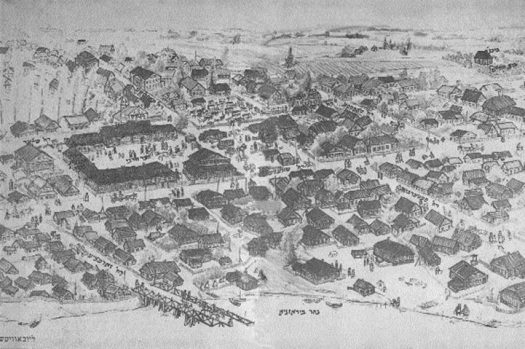
Weekly Story: Living L’chatchila Ariber
by Rabbi Sholom DovBer Avtzon
This past Wednesday was Beis Iyar, the birthday of the Rebbe Maharash, who is known for his approach of L’chatchilla Ariber.
It is not just that he approached every situation with this perspective, [as all of the Rebbeim did tremendous miracles], but that he empowered the chassidim to conduct themselves in such a manner.
The question becomes how can we live in that mind-set?
With that in mind, I am posting a story that the Frierdiker Rebbe related in Likkutei Dibburim.
One of the evenings of Chanukah of 5650 (1890), I was allowed to participate/listen in a farbrengen of elder chassidim. My teacher Reb Shmuel Betzalel, the chossid Reb Chanach Hendel, Reb Aharon [Chozer] Reb Yekusiel of Dokshitz and the chossid Reb Zalman. They were reminiscing in detail of the events of the youth, when they all went to the Rebbe the Tzemach Tzedek, (going back at least 25 years).
Suddenly, Reb Zalman stood up and began singing the tune that the Tzemach Tzedek davened the Musssaf tefilla of Rosh Hashanah. The other chassidim also arose and joined him in singing it.
When they came to the stanza that the Rebbe said the words of Ashrei Ish shelo yishguchecho, ubein adam Yisametz buch (Happy is the man who does not forget You, the son of a man who holds on fast to You), they all became enraptured in a state of ecstasy that their faces shined with happiness and tears began rolling down their cheeks.
I saw that they were reliving that moment, and without a doubt each one felt at that moment that he is in the Rebbe’s presence and listening to the Rebbe’s tefilla. In my youthful innocence, I was so drawn into it, that I began to envision that I too was there and listening to the Tzemach Tzedek’s davening. Being that I heard numerous stories of how neshoma of the Rebbeim reveal themselves in various ways to their descendants and students, I was positive that that my great-grandfather was making his presence felt to them now.
Over the years when I learned Chassidus, and began to understand the hiskashrus between a chossid and his Rebbe, I realized that their deveikus (cleaving) to the Rebbe has the power/ability to cause that the Rebbe should reveal himself to them!
At that point I developed a new level of reverence to these chassidim. I saw that it is possible through avodah and a chassidishe farbrengen to divest oneself from their everday life, and attain an ascent of the neshoma.
It is hard for one who is living a tumultuous life, to comprehend such a concept. However, when one elevates and refines himself, then this is understood and felt.
This is in essence a primary aspect of Chassidus lhagbir hatzurah ahl hachomer – to elevate the physical into spiritual, to see something in its true meaning and not just from its appearance.
Take for example the horrors of WWII, it was bitter days for klal Yisroel. But at that time, the Frierdiker Rebbe came out with his three proclamations of l’alter l’teshuva l’alter l’geulah.
The Frierdiker Rebbe experienced first-hand the horrors and fright of the German occupation of Wasaw. His youngest daughter and son in law as well as other members of the family were killed. His grief and suffering was so strong when he read how his closest chassidim were burne d alive in Riga, that he suffered a heart attack.
Yet, he comforted others who were besides themselves for not saving even more individuals, saying, “One cannot forget that everything comes from Hashem.
Perhaps this is what the Rebbe meant when he repeatedly said, around chof-ches Nissan (which was last week) ,we have to bring the Aleph into the word golah, and then we have geulah.
Aleph is referring to Hashem, golah is the exile we are presently in and by elevating ourselves higher, we will merit the geulah speedily in our days
Rabbi Avtzon is a veteran mechanech and the author of numerous books on the Rebbeim and their chassidim. He can be contacted at avtzonbooks@gmail.com












